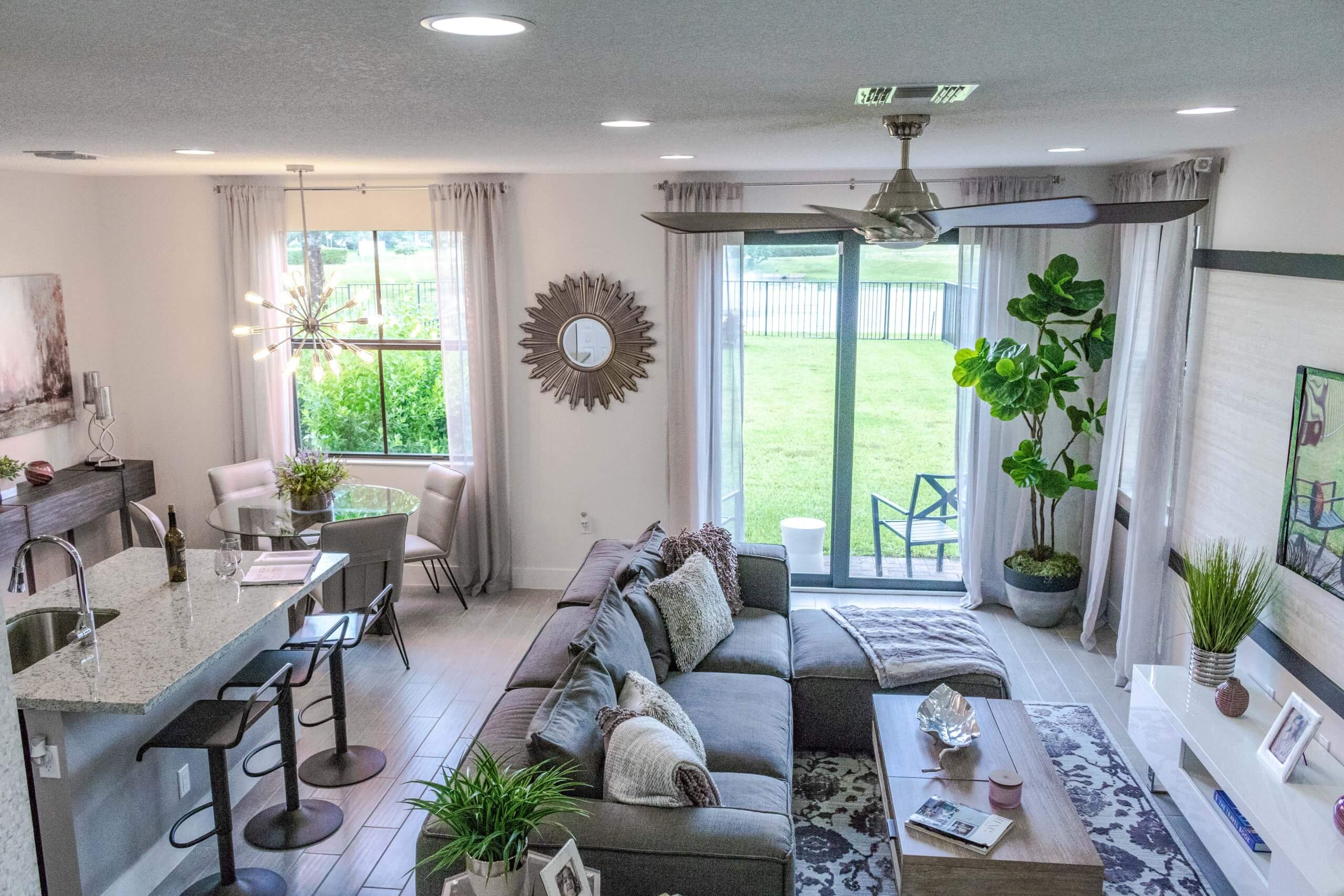 Many homeowners feel the need for more space in their homes as their families grow. Or, there’s a desire for rental income or the need for nearby living space for aging parents. Creating an accessory dwelling unit can be the solution to all of these problems. However, it may not be the best solution for everyone.
Many homeowners feel the need for more space in their homes as their families grow. Or, there’s a desire for rental income or the need for nearby living space for aging parents. Creating an accessory dwelling unit can be the solution to all of these problems. However, it may not be the best solution for everyone.
What is an accessory dwelling unit (ADU)?
Simply put, ADUs provide additional or accessory living space to the main residence on the property. They are different from in-law suites or other home additions in that they sit on the lot as a detached unit.
Often times, the structure starts out as a detached garage and is transformed into a separate dwelling in order to provide rental income to the homeowner. In other cases, the new space provides separate living quarters for a loved one who needs care or supervision but still wants privacy or some independence.
Factors to consider before constructing an accessory dwelling unit
As with any home remodeling project, the construction of an ADU requires careful planning. There are many factors to consider in the beginning phases to ensure a smooth building process and a finished product that will meet your needs. Start off right by asking these questions …
- Are ADUs allowed in your area? The California Legislature updated ADU and JADU law effective January 1, 2020 to clarify and improve various provisions in order to promote the development of granny flats, garage conversions, and junior accessory dwelling units (JADUs). These include allowing ADUs and JADUs to be built concurrently with a single-family dwelling. This is excellent news!
- Do you already have a structure on site that could be converted to an ADU? Detached and even attached garages that are not being used to their full potential often offer a great place to start. If the building is in good structural condition, you may be able to realize significant cost savings during construction. You may retrofit the existing garage or even build on to it. You may also consider building a 2nd story with a separate entrance.
- What will the extra space be used for? Accessory dwelling units could be as simple as an extra bedroom that you use only when you have company. Or, they can be fully functioning units complete with kitchen, bathroom, and living space. Of course, the size and purpose of the unit will also affect the cost.
- Will the ADU be for personal use or rental income? The answer to this question can help steer you in the right direction in terms of how much to spend, what style and functions you need, and the overall design. If this is family or someone older, you immediately want to consider keeping this on the ground floor. If this is for rental income, a garage conversion may be your best bet; you would want to go on the lower end of finishes to save money and maximize your earning potential. Most ADUs can cover the mortgage from the get go and why it;s such a positive addition to your portfolio.
- Do you have a professional contractor lined up? Unless you’re a building professional yourself, constructing an accessory dwelling unit on your own is not the best idea. Instead, hire a professional remodeling company that is well versed in the regulations of your town. They will have expert staff that possesses the design, building, electrical, and plumbing skills required for the job.
Restrictions on ADUs in California
Accessory dwelling units can be a promising solution for highly populated areas where housing is a problem. In the past, however, many California cities and homeowners associations had restrictions that would prevent the construction of ADUs, or at least make the process difficult.
In recent months, however, California’s regulators have passed ADU laws that currently make accessory dwelling unit construction a little easier and more cost-effective. Regulations, permits, and fees often change, however, and penalties for non-conformance to laws can be stiff. That’s why it’s critical to stay informed about current best practices and requirements.
At Sea Pointe, we make construction of accessory dwelling units easy for the homeowner. First, we work with you to design an ADU that meets your wants and needs but functions within your available space. Then, we work with local governments on your behalf to obtain the required permits and inspections for construction. Lastly, we get to work and create a top-quality accessory dwelling unit that will add value to your property and provide useful living space for years to come.
Are you ready to get started? Give us a call at (949) 861-3400. We’re excited to be the design-build team that will make your remodeling dreams come true!